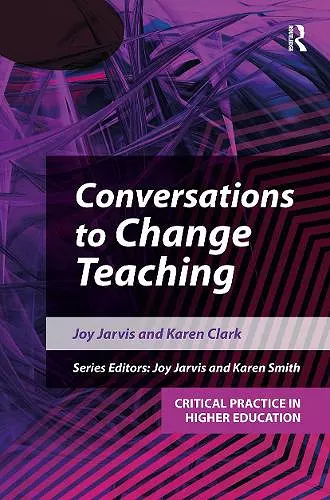Conversations to Change Teaching
Karen Clark author Joy Jarvis author
Format:Paperback
Publisher:Taylor & Francis Ltd
Published:1st May '20
Currently unavailable, and unfortunately no date known when it will be back

This non-fiction paperback, "Conversations to Change Teaching" from Karen Clark & Joy Jarvis, was published 1st May 2020 by Taylor & Francis Ltd.
ISBN: 9781913063771
Dimensions: unknown
Weight: 160g
94 pages